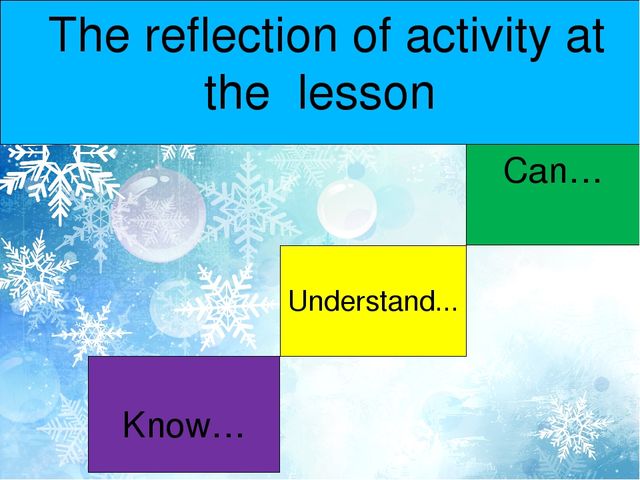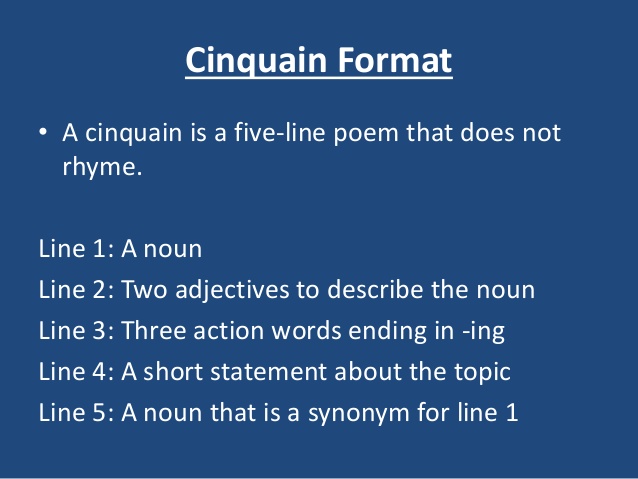
Lesson plan
|
LESSON: Unit 6: Entertainment and Media: Focusing on TV programmes and films |
School: CSI «A.Alimzhanov secondary school» |
|||||||||||||||||||||||||||
|
|
Teacher name: Kaliyeva G.K. |
|||||||||||||||||||||||||||
|
CLASS: 7 |
Number present: |
absent: |
||||||||||||||||||||||||||
|
Learning objectives(s) that this lesson is contributing to |
7.L3 understand with some support most of the detail of an argument in extended talk on a limited range of general and curricular topics 7.UE5 use questions which include a variety of different tense on a range of familiar general and curricular topics 7.S3 give an opinion at discourse level on a growing range of general and curricular topics 7.C1 use speaking and listening skills to solve problems creatively and cooperatively in groups |
|||||||||||||||||||||||||||
|
Lesson objectives
Language objectives
|
All learners will be able to: |
|||||||||||||||||||||||||||
Understand questions in a variety of tenses. |
||||||||||||||||||||||||||||
|
Most learners will be able to: |
||||||||||||||||||||||||||||
|
||||||||||||||||||||||||||||
|
Some learners will be able to:
Learners can:
Subject-specific vocabulary and terminology: a documentary, the news, a reality TV show, a talk-show, quiz show, cartoon, police drama, comedy programme, sport programme, drama films,detective, fantasy. Useful sets(s) and phrases for dialogue and writing: What movies do you know that are filmed by famous books? What types of TV programmes do you know? |
||||||||||||||||||||||||||||
|
Assessment criteria |
Criteria based assessment, Formative assessment |
|||||||||||||||||||||||||||
|
Previous learning |
Different activities based on the content of the books |
|||||||||||||||||||||||||||
|
Plan |
||||||||||||||||||||||||||||
|
Planned timings |
Planned activities (replace the notes below with your planned activities) |
Resources |
||||||||||||||||||||||||||
|
Start (7 min) Greeting Psychological mood Checking up homework |
Teacher greets learners using «I wish» strategy Teacher invites learners to make a circle, learners one by one wish each other good wishes. (W) Learners have to find more information about different activities, based on the content of the books. Teacher asks learners some questions E.g. «What books did you read? What do you know about audio books? What movies do you know that are filmed by famous books? |
|
||||||||||||||||||||||||||
|
Middle (20 min) The opening theme of the lesson |
«Brainstorming» strategy Pre-listening (D) Teacher introduces new vocabulary of the lesson on the active board. (a documentary, the news, a reality TV show, a talk-show, quiz show, cartoon, police drama, comedy programme, sport programme, drama films, detective, fantasy) (D) (W) Teacher presents a video about different types of the TV programmes and films. Learners need to find the theme of the lesson. (I) Teacher provides worksheets to learners; they have to match the words with the types of TV programmes and films. Task 1. Match the words with the pictures |
PPT https://www.youtube.com/watch?v=VB63VnavjLg Worksheets |
||||||||||||||||||||||||||
|
Physical drill End (18 min) Reflection |
Descriptors: A learner
Self-assessment «General learning scale» Zero means that learners do not understand One finger means that learners understand some,but have some questions. Two finger means that learners understand and can do it themselves Three finger means that learners understand and can help to classmates «Exhibition of ideas» strategy (
Make a dialogue by using following questions below. Use of English questions in a Present and Past tenses
Descriptor: a learner
Pair assessment PMI Plus,Minus,Interesting.
Learners tell each other about strengths and weaknesses for future improvement and about interesting ideas making up a dialogues.
Teacher shows a part of film «Harry Poter» ,that was filmed by famous book.
«The Best author» (G) Teacher divides learners into 3 groups. Invites learners to take pieces of pictures with genres of films ( fantasy, drama, comedy). Gives learners instructions to write the script of the episode of film in free theme in the following genres. Describe this picture and write short episode using fantasy, drama or comedy. And then act out the episode. Task 3. To write the script of the episode of film using genre and act out episode. Descriptors: A learner
Group assessment. «2 stars and a wish» For pair assessment, ask students to give two stars and a wish. Two stars = 2 things that are good about the piece of work A wish = something they can improve to make it even better
The strategy «Sinquan» Teacher asks to write a short
poem in sinquan format and then read
it to
classmates.
Teacher gives learners assessment sheets and asks them to assess themselves in evaluation sheets Final Self-assessment: Tick Yes or No
|
Mobile Phones, Enternet, posters, QR codes
https://www.youtube.com/watch?v=ZAf3U0J8Se8
|
||||||||||||||||||||||||||
|
Additional information |
||||||||||||||||||||||||||||
|
Differentiation – how do you plan to give more support? How do you plan to challenge the more able learners? |
Assessment – how are you planning to check learners’ learning? |
Cross-curricular links |
||||||||||||||||||||||||||
|
By tasks.
Greater challenge will be provided through inclusion of different questions. |
Criteria based
assessment through questioning and
the Formative assessment: 1. «General learning scale» 2. «2 stars and a wish» 3. «PMI» Plus, Minus, Interesting. |
|
||||||||||||||||||||||||||
|
Reflection Were the lesson objectives/learning objectives realistic? What did the learners learn today? What was the learning atmosphere like? Did my planned differentiation work well? Did I stick to timings? What changes did I make from my plan and why?
|
Use the space below to reflect on your lesson. Answer the most relevant questions from the box on the left about your lesson. |
|||||||||||||||||||||||||||
|
|
||||||||||||||||||||||||||||
|
Summary evaluation What two things went really well (consider both teaching and learning)? 1: 2: What two things would have improved the lesson (consider both teaching and learning)? 1: 2: What have I learned from this lesson about the class or individuals that will inform my next lesson? |
||||||||||||||||||||||||||||
жүктеу мүмкіндігіне ие боласыз
Бұл материал сайт қолданушысы жариялаған. Материалдың ішінде жазылған барлық ақпаратқа жауапкершілікті жариялаған қолданушы жауап береді. Ұстаз тілегі тек ақпаратты таратуға қолдау көрсетеді. Егер материал сіздің авторлық құқығыңызды бұзған болса немесе басқа да себептермен сайттан өшіру керек деп ойласаңыз осында жазыңыз
Ашық сабақ Focusing on TV programmes and films 7 сынып
Ашық сабақ Focusing on TV programmes and films 7 сынып
Lesson plan
|
LESSON: Unit 6: Entertainment and Media: Focusing on TV programmes and films |
School: CSI «A.Alimzhanov secondary school» |
|||||||||||||||||||||||||||
|
|
Teacher name: Kaliyeva G.K. |
|||||||||||||||||||||||||||
|
CLASS: 7 |
Number present: |
absent: |
||||||||||||||||||||||||||
|
Learning objectives(s) that this lesson is contributing to |
7.L3 understand with some support most of the detail of an argument in extended talk on a limited range of general and curricular topics 7.UE5 use questions which include a variety of different tense on a range of familiar general and curricular topics 7.S3 give an opinion at discourse level on a growing range of general and curricular topics 7.C1 use speaking and listening skills to solve problems creatively and cooperatively in groups |
|||||||||||||||||||||||||||
|
Lesson objectives
Language objectives
|
All learners will be able to: |
|||||||||||||||||||||||||||
Understand questions in a variety of tenses. |
||||||||||||||||||||||||||||
|
Most learners will be able to: |
||||||||||||||||||||||||||||
|
||||||||||||||||||||||||||||
|
Some learners will be able to:
Learners can:
Subject-specific vocabulary and terminology: a documentary, the news, a reality TV show, a talk-show, quiz show, cartoon, police drama, comedy programme, sport programme, drama films,detective, fantasy. Useful sets(s) and phrases for dialogue and writing: What movies do you know that are filmed by famous books? What types of TV programmes do you know? |
||||||||||||||||||||||||||||
|
Assessment criteria |
Criteria based assessment, Formative assessment |
|||||||||||||||||||||||||||
|
Previous learning |
Different activities based on the content of the books |
|||||||||||||||||||||||||||
|
Plan |
||||||||||||||||||||||||||||
|
Planned timings |
Planned activities (replace the notes below with your planned activities) |
Resources |
||||||||||||||||||||||||||
|
Start (7 min) Greeting Psychological mood Checking up homework |
Teacher greets learners using «I wish» strategy Teacher invites learners to make a circle, learners one by one wish each other good wishes. (W) Learners have to find more information about different activities, based on the content of the books. Teacher asks learners some questions E.g. «What books did you read? What do you know about audio books? What movies do you know that are filmed by famous books? |
|
||||||||||||||||||||||||||
|
Middle (20 min) The opening theme of the lesson |
«Brainstorming» strategy Pre-listening (D) Teacher introduces new vocabulary of the lesson on the active board. (a documentary, the news, a reality TV show, a talk-show, quiz show, cartoon, police drama, comedy programme, sport programme, drama films, detective, fantasy) (D) (W) Teacher presents a video about different types of the TV programmes and films. Learners need to find the theme of the lesson. (I) Teacher provides worksheets to learners; they have to match the words with the types of TV programmes and films. Task 1. Match the words with the pictures |
PPT https://www.youtube.com/watch?v=VB63VnavjLg Worksheets |
||||||||||||||||||||||||||
|
Physical drill End (18 min) Reflection |
Descriptors: A learner
Self-assessment «General learning scale» Zero means that learners do not understand One finger means that learners understand some,but have some questions. Two finger means that learners understand and can do it themselves Three finger means that learners understand and can help to classmates «Exhibition of ideas» strategy (
Make a dialogue by using following questions below. Use of English questions in a Present and Past tenses
Descriptor: a learner
Pair assessment PMI Plus,Minus,Interesting.
Learners tell each other about strengths and weaknesses for future improvement and about interesting ideas making up a dialogues.
Teacher shows a part of film «Harry Poter» ,that was filmed by famous book.
«The Best author» (G) Teacher divides learners into 3 groups. Invites learners to take pieces of pictures with genres of films ( fantasy, drama, comedy). Gives learners instructions to write the script of the episode of film in free theme in the following genres. Describe this picture and write short episode using fantasy, drama or comedy. And then act out the episode. Task 3. To write the script of the episode of film using genre and act out episode. Descriptors: A learner
Group assessment. «2 stars and a wish» For pair assessment, ask students to give two stars and a wish. Two stars = 2 things that are good about the piece of work A wish = something they can improve to make it even better
The strategy «Sinquan» Teacher asks to write a short
poem in sinquan format and then read
it to
classmates.
Teacher gives learners assessment sheets and asks them to assess themselves in evaluation sheets Final Self-assessment: Tick Yes or No
|
Mobile Phones, Enternet, posters, QR codes
https://www.youtube.com/watch?v=ZAf3U0J8Se8
|
||||||||||||||||||||||||||
|
Additional information |
||||||||||||||||||||||||||||
|
Differentiation – how do you plan to give more support? How do you plan to challenge the more able learners? |
Assessment – how are you planning to check learners’ learning? |
Cross-curricular links |
||||||||||||||||||||||||||
|
By tasks.
Greater challenge will be provided through inclusion of different questions. |
Criteria based
assessment through questioning and
the Formative assessment: 1. «General learning scale» 2. «2 stars and a wish» 3. «PMI» Plus, Minus, Interesting. |
|
||||||||||||||||||||||||||
|
Reflection Were the lesson objectives/learning objectives realistic? What did the learners learn today? What was the learning atmosphere like? Did my planned differentiation work well? Did I stick to timings? What changes did I make from my plan and why?
|
Use the space below to reflect on your lesson. Answer the most relevant questions from the box on the left about your lesson. |
|||||||||||||||||||||||||||
|
|
||||||||||||||||||||||||||||
|
Summary evaluation What two things went really well (consider both teaching and learning)? 1: 2: What two things would have improved the lesson (consider both teaching and learning)? 1: 2: What have I learned from this lesson about the class or individuals that will inform my next lesson? |
||||||||||||||||||||||||||||

шағым қалдыра аласыз


























